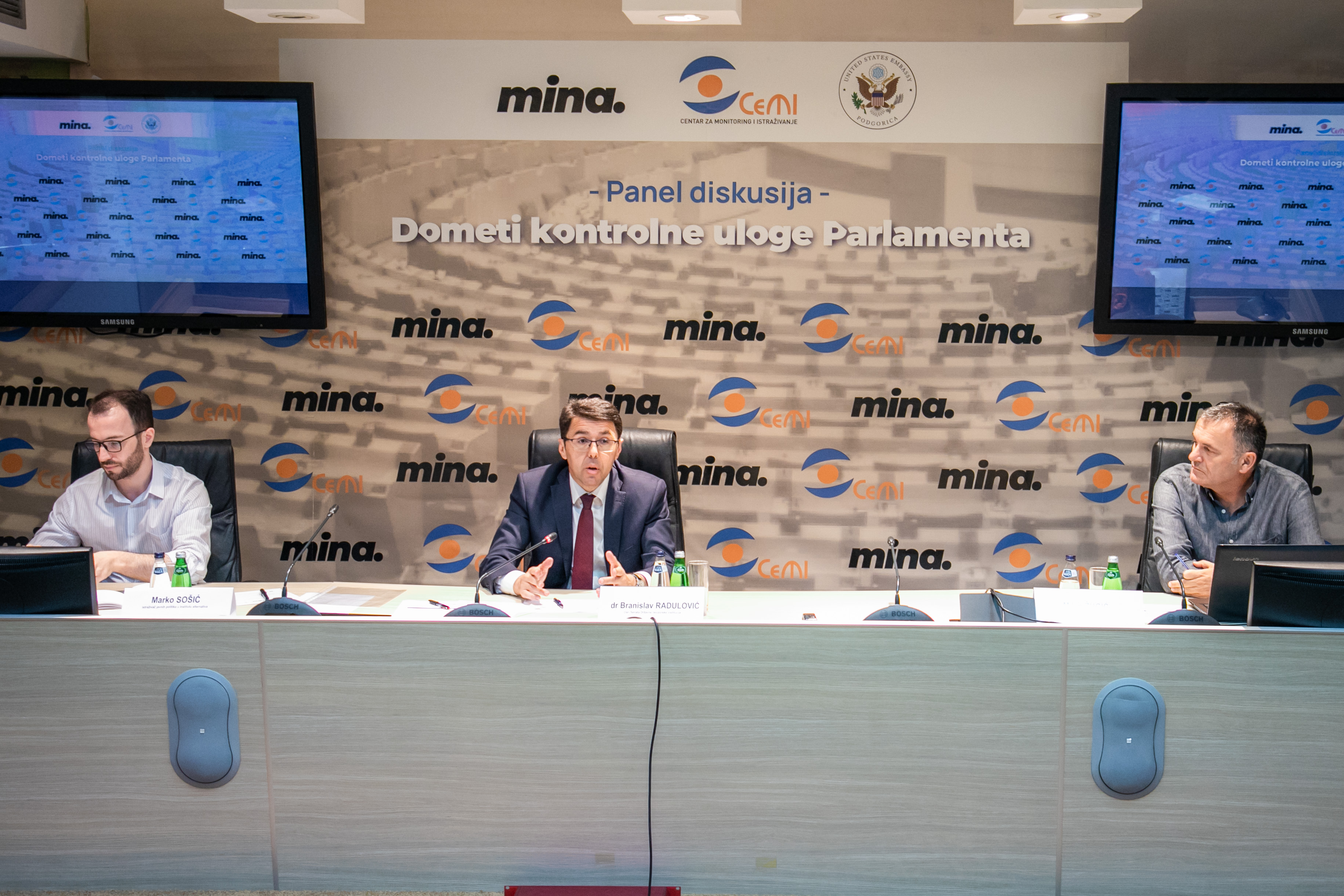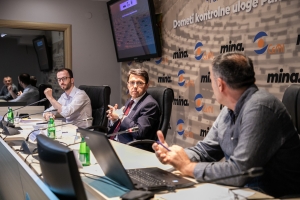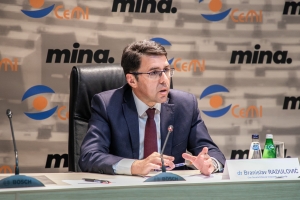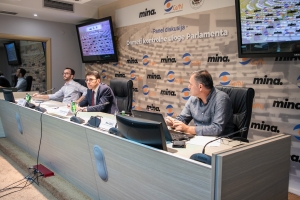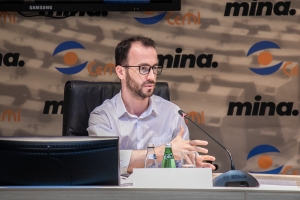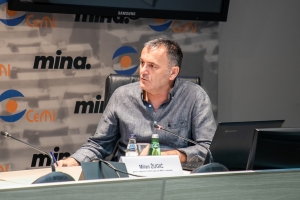Control hearings in the Parliament must result in dismissal if the official receives the opinion from the Parliament that he acted illegally or if he received a negative opinion from the State Audit Institution (SAI), one of the conclusions of the panel discussion "Scope of the control role of the Parliament" organized on June 22nd, 2022 in the framework of the project "Improving citizens' knowledge about democratic processes using modern forms of communication", which is financially supported by the Embassy of the United States of America in Montenegro.
The member of the Senate of the SAI, Branislav Radulovic, said at the panel discussion that the constitutional competences of the Assembly are often forgotten. "Parliament is often viewed as a legislative body, and it is ignored that its function is to control the executive power," said Radulovic.
Speaking about the period since 2001, Radulovic assessed that a single assessment cannot be drawn as to whether the Assembly fulfilled its role of controlling the executive power and that it must be observed in different stages. He said that the Assembly was in one period the "flow boiler" of the Government, and that in 2013 a large number of constitutional changes took place and that the period of atrophy occurred from 2016 to 2020.
"Since March of this year, statistics show visible progress in activities that are under the direct responsibility of the Assembly," he said.
Radulovic, speaking about control and consultative hearings, said that they must cause some kind of effect.
"I'm talking about loss of trust, not criminal or misdemeanor sanction. If the supreme state audit gives you a negative opinion, if the proposal of your findings does not pass in the parliament, if the parliament gives a general opinion that you did not act in a legal way, the least consequence is that the person loses public-legal authority and is dismissed," he said.
Public policy researcher at the Institute of Alternatives, Marko Sosic, said that everything that is happening in the current convocation is a huge success, and that the "absolute bottom of parliamentarism" was the period from 2016 to 2020.
"In that convocation, we had the adoption of the budget rebalance in 20 minutes. The President of the Assembly reminded the deputies that some proposal was from the opposition, and we also had boycotts of the Assembly", added Sosic. He said that now everything is different because of the specific political situation. He also pointed out that it often happens that there are no conclusions from the control hearing. "And even when we have, they are mostly political messages," he said.
Sosic said that the fact that the sessions of the Assembly and the Board are available live to citizens is a step forward.
Speaking about the parliamentary investigations, of which there have been three in the past ten years, Sosic said that he believes that there were many reasons, but that, unfortunately, the investigations were lacking. "For that mechanism, we have a special law on parliamentary investigation, so from the legal aspect, the control function is quite well rounded," he added.
Speaking about budget supervision, Sosic said that Montenegro is the only country in the region where the government does not have the obligation to report on the execution of the budget during the year, neither quarterly nor annually.
"It is a catastrophic fact; we have to change the legal framework. "When MPs have a motive, they are much more active in attacking and changing the budget proposal, but they are not active when it comes to monitoring its implementation," said Sosic.
According to him, consultative hearings are a softer type of parliamentary hearing and are not a sufficiently used instrument. He stated that post-legislative supervision is also one of the unused areas. "The reliability of the Assembly is not only to adopt a law, but also to take care of its implementation", added Sosic.
